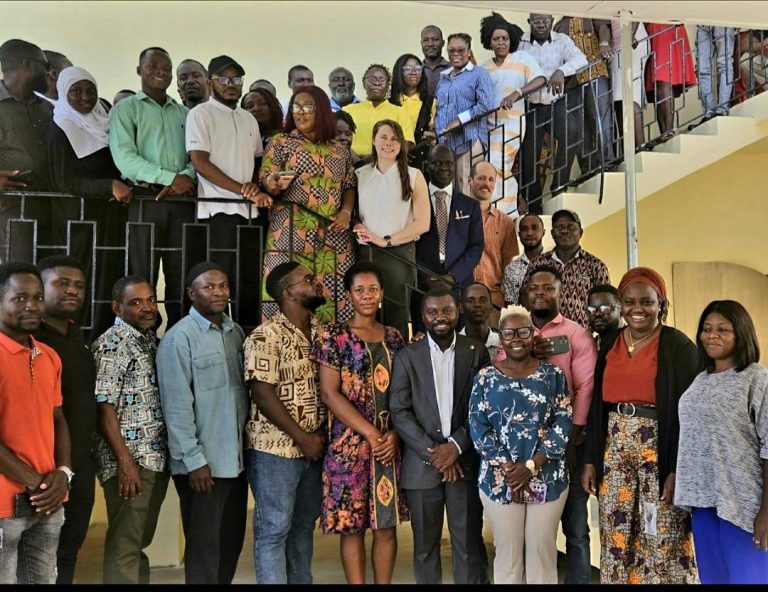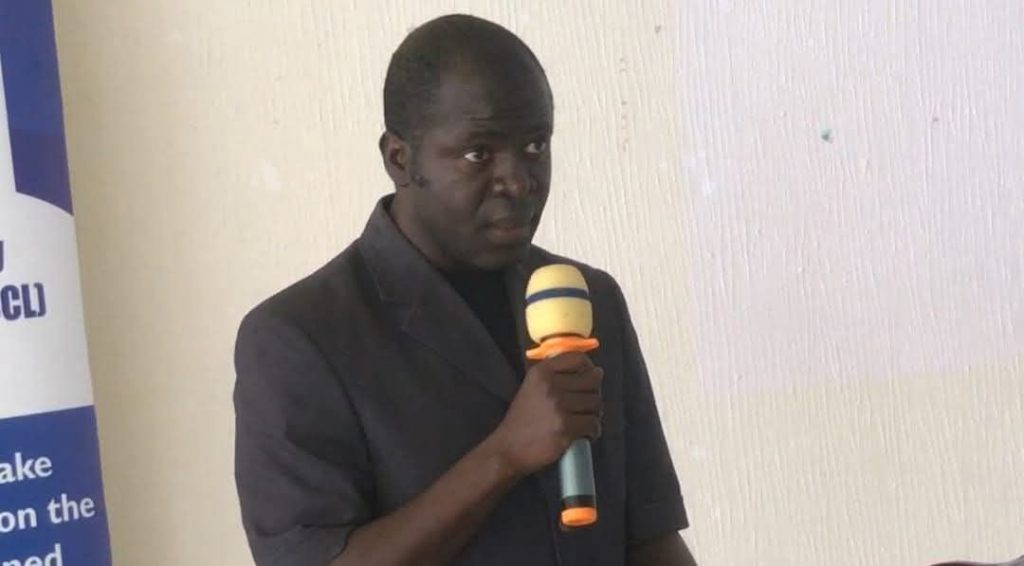Posts Categories
Latest Posts

(Monrovia, February 17, 2024) – The Environmental Protection Agency (EPA) of Liberia, with support from Novasphere, has commenced one-week geospatial training for forest monitors.
The training, which is being held at the University of Liberia’s main campus in Monrovia, aims to enhance the technical capacity of participants in forest mapping and monitoring using advanced digital tools.
The training is part of the Transformative Pilot Project on Forest and Mangrove Monitoring, supported by the Government and people of Canada through Novasphere.
The workshop has brought together over 50 participants from the EPA, the Forestry Development Authority (FDA), and representatives from The Gambia.
It focuses on utilizing open-source geospatial tools, including Google Earth Engine (GEE), System for Earth Observation, Data Access, Processing and Analyzing for Land Monitoring (SEPAL), and Collect Earth Online, to develop an updated baseline forest extent map for Liberia as participants being introduced to machine learning techniques for forest mapping.

Speaking at the opening ceremony, EPA Executive Director Dr. Emmanuel Urey Yarkpawolo highlighted the importance of Liberia’s forests, which cover about 69% of the country’s land area and serve as a crucial carbon sink.
“Liberia is home to over 43% of the remaining tropical forests in the Upper Guinea Forest region,” Dr. Yarkpawolo stated. “These forests play a key role in biodiversity conservation and climate change mitigation,” he stated.
The EPA boss further emphasized the need for Liberia to establish a climate change law and carbon market policy to benefit from global carbon trade initiatives.
According to him, efforts are also underway to recruit a consultant for drafting the carbon market policy and a law firm to draft the climate change law.
Dr. Yarkpawolo expressed gratitude for this support, noting that Liberia now has two sophisticated drones for monitoring forest cover.
In addition to forest monitoring, he highlighted an ongoing learning exchange program in The Gambia, where Liberian energy professionals are studying net-metering.
The EPA Executive Director stressed that the system allows independent renewable energy producers to contribute excess electricity to the national grid, promoting renewable energy adoption and reducing electricity costs.
Welcoming participants, Dr. Yarkpawolo extended special appreciation to trainers from the United States and The Gambia, expressing hope that the training will enhance Liberia’s ability to manage its forest resources effectively.
Given an overview of the training, J. Negatus Wright, Pilot Lead Coordinator for the Transformation Pilot on Forest and Mangroves Monitoring Novasphere-EPA Liberia, highlighted the capacity gap in the management of Liberia’s forests, emphasizing the need for the formulation of effective policies to close such gap.
He noted that the building of the capacities of Liberian stakeholders and professionals in the sector will put the country in a better space to produce the needed data for national decision making and also, put Liberia in the position to meet it international reporting requirement in terms of GHG reporting to its international partners, such as the UNFCCC.
“At the end of this training, we expect all of our people, the trainers here, to learn how to use drones, GIS and remote sensing to monitor the forest and mangroves landscape of Liberia” he stated. “So capacity gap is first thing”.
Wright also indicated that the training will foster and enhance institutional coordination, particularly involving the EPA, FDA, the Liberia Institute for Statistics and Geo-Information Services (LIGIS), Ministry of Mines and Energy and other line government institutions.
The Pilot Lead further urged the Liberian government to institute what he termed as a domestic measurement, reporting and verification system, to boost the trust in donors for support they provide to Liberia’s climate finance.
“So, the Liberian government has to work together, all of the branches of government, ministry and agency, including the national legislature; once you have policies in place, you have national experts who can collect the data, then you measure and report, the doors are open,” he said.
Liberia’s forests are critical for biodiversity conservation, climate regulation, and community livelihoods. However, effective forest management requires reliable and locally relevant forest extent maps. The 2014 forest map currently in use needs to be updated with a methodology tailored to Liberia’s specific forest conditions and definitions.
The one-week workshop is expected to address these needs by providing participants with practical skills in machine learning, and associated tools like Collect Earth Online (CEO). The workshop was preceded by a virtual workshop in October 2024, “Interpretation Keys and Project Planning”, and will be followed by more in-depth workshops on forest monitoring.
